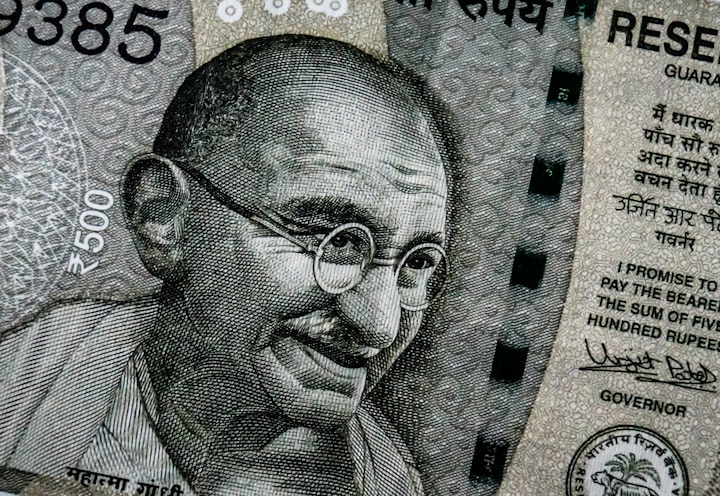The 17th Century British Colonial Blitzkrieg
How England went from island nation to global empire in a century

The British Empire reached its venerable peak during the Victorian Age. There were British colonies and protectorates spanning the globe from the southern tip of Africa to India, from Hong Kong to Gibraltar, and beyond. It was fashionable to say that the sun never set on the British Empire, both in fortunes and in the very literal sense. However, this empire did not spring from nothing. The seeds for England's eventual greatness and global domination were planted in a century that gets very little attention.
England quietly and determinedly began laying the foundation for her eventual record breaking empire in the earliest days of the 17th century. They were little victories, small battles, and a continual march towards greatness that we can appreciate now but seldom do.
Governor and Company of Merchants of London trading into the East Indies
In 1599, a group of capitalists and adventurers approached the crown in England to ask for a charter granting them the rights to conduct trade in the new markets emerging in the East Indies. The lords of England at the time were skeptical of such a venture. Despite successfully attracting large sums of capital and ships to fuel their ambitions, not everyone saw the value in expanding into the East Indies.
That changed a year later, on the last day of 1600 when Queen Elizabeth I granted the fledgling company a royal charter declaring them the sole owners of trading rights on behalf of the British. A monopoly on nothing was still nothing, or so they thought.
This venture, known as the Governor and Company of Merchants of London trading into the East Indies, a wordy title to be sure, would grow into the powerful East India Company, one of the primary engines of British expansion in the world for centuries to come.
The formation of the East India Company was the first, small, step into the larger world of empire.
From India to America and back again
After 1600, British global expansion began to pick up at a rapid pace. In 1604 they made an unsuccessful bid to establish a permanent colony in Guiana. They would later return, 200 years later, and claim the territory they failed to grab prior.
Three years later, the Virginia Company lands and founds the first permanent colony in North America at Jamestown, Virginia. Jamestown becomes a foothold for the British that would blossom into command of the entire Eastern Seaboard of North America.
It is at this time that England begins to realize that overseas territory and projection of power is something worth fighting for. Trade rights are lucrative. Raw resources and exotic materials were in high demand. Soon, England begins pressing their claims by force, and dominance over their rivals becomes a theme that would continue until World War I.
In 1615, the British press their trading monopoly in the East Indies by defeating a group of Portuguese ships that were also trading in the area. The world took notice that the East India Company was a monopoly with the military authority of the English crown behind it.
Five years later the Mayflower sails from England with new settlers determined to make North America their home. That was in 1620.
By 1624 the British lay claim to St. Kitts in the Caribbean.
In 1627 they hop to Barbados. In 1628 they expand and seize the island of Nevis. All the while their nascent colonies in North America proper begin to establish themselves and expand after some harsh winters.
In 1633 the English build a trading post in Bengal to fuel their rapidly growing economic ventures in the region. In 1639 they appear in Madras, India. By 1668, the East India Company has laid claim to all of Bombay. India would be under British rulership until the 1940s, three centuries later.
Back in the Americas expansion continues abreast both in the Caribbean and New England.
Jamaica is annexed from the Spanish Empire in 1655 after a popular campaign launched by Oliver Cromwell to inherit more and more territory in North America. The Anglo-Spanish War hoped to wrest lightly defended American territories from Spanish hands and place them in British ones. The war itself was largely a failure but Jamaica too would remain firmly under British control for over three hundred years to come.
In 1664, the island of Manhattan and the surrounding lands were ceded from the Dutch to the British. They renamed the territory New York, a name it still has to this day, and it would remain a prominent British territory until the American Revolution over a hundred years later.
Two years after that, they settle in the Bahamas.
By the end of a hectic century, the English have spread across the globe in places they never thought possible mere decades before.
Seeds sown
It is at this point that most people pick up the thread of the British Empire, in the days before the American Revolution. To get to that point, the British expanded voraciously throughout the 17th century. From the founding of the East India company in the twilight of 1600 the British would end the century in possession of multiple Caribbean ports, colonies in continental North America. They have permanent colonies sprouting up in India and militaristic trade posts around the Bay of Bengal.
They seized multiple territories from their rivals, a trend that would continue for a long period of time. They landed New York from the Dutch, they bullied the Portuguese off their lucrative trade routes, and took Jamaica from the Spanish. The 18th century would see them take more territory from the Spanish and the French around the globe including Gibraltar and Nedwfoundland.
Many of these territories would remain in British possession for hundreds of years. Some of them are still under British control. These seeds of empire took root firmly and quickly in a way that few others manage to do. The result was one of the largest empires the world had ever known.
It all started with a few economic expansions in the 17th century that eventually grew to consume the world for the next two hundred years.
About the Creator
Grant Piper
A professional freelancer with a knack and passion for telling stories.






Comments
There are no comments for this story
Be the first to respond and start the conversation.